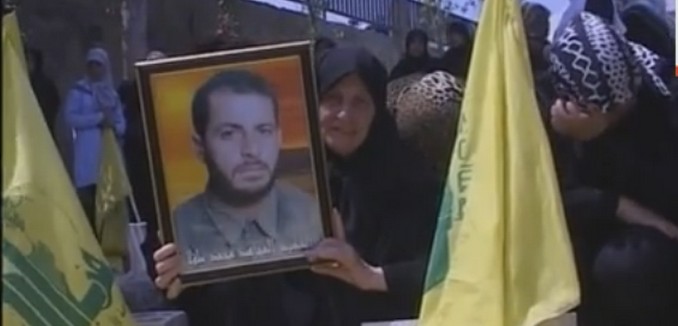Low-level members of Hezbollah are growing increasingly frustrated with the Iran-backed terrorist militia, with many saying that they just want to be paid so they can go home.
Hanin Ghaddar, the managing editor of the Lebanese news website NOW, came to this conclusion after interviewing after interviewing a number of young men who have been fighting for Hezbollah in Syria.
Hezbollah’s appeal, Ghaddar wrote, originally stemmed from its connection to the “three pillars of a Lebanese Shiite identity”: resistance to Israel, “the collective memory of the battle of Karbala” (a key event in the early Sunni-Shiite split), and allegiance to the Ayatollah of Iran under the philosophy of Wilayat al-Faqih, or the “rule of the jurisprudent.”
But as Ghaddar wrote, “That devotion and eagerness to belong and sacrifice is no longer sensed.”
Hezbollah fighters who talked to me did not show the motivation or passion that I used to see in young men’s eyes when I lived in the South [of Lebanon]. These eyes were empty, anxious and very tired. They refer to their missions in Syria as “the job”, and it’s not even a job they seem to enjoy.
While the fighters Ghaddar interviewed at first expressed enthusiasm for the “resistance” or fighting the “Zionist conspiracy,” they admitted their disillusionment as the interview progressed. Her interviewees largely came from poverty and joined Hezbollah because they saw it as the only alternative to unemployment.
“I am just waiting for my contract to expire and then I’m out,” a 25-year-old named Mahdi told her. Hezbollah recruits sign two-year contracts that provide a salary and benefits, but bind the fighters to the organization for the full term of the contract under threat of imprisonment. Mahdi’s disillusionment stemmed in part from his early expectations that joining Hezbollah would help him with employment opportunities when his contract was up. “Instead,” he said, “I feel like I took a job at a company where I am required to give everything, including my life, and there are no guarantees for the future beyond these two years.” Even more frustrating, Hezbollah stopped paying death benefits to the families of fighters who die two years ago.
“You need to understand that I’ve lost many friends in Syria and it is not going to be easy for me to leave the battle, even if I’m tired and disappointed,” 23-year-old Mustafa told Ghaddar. “It would feel that I’ve betrayed my friends.” Ghaddar noted that Mustafa was motivated by the memory of his dead friends more than Hezbollah’s ideology.
While Hezbollah once had clearly defined goals—to liberate its land and gain political power—it now is serving as Iran’s proxy, not just in Lebanon, but in Syria, Iraq, and Yemen as well. Even its enemies aren’t the same. The United States, Ghaddar wrote, isn’t always the “Great Satan,” and even Russia, Iran’s ally, coordinates its activities with Israel.
“We are invaders,” Mustafa told Ghaddar. “This is our role now. Yes, I have many questions, but war is too complicated and I have a family to support.”
Gaddar concluded by describing how Hezbollah has lost its focus:
The “resistance” has gone corporate and the old beliefs of liberation and freedom are now replaced with ambitions for promotion and better status. It is going to be extremely difficult for Hezbollah to come back from this.
[Photo: Associated Press / YouTube ]




